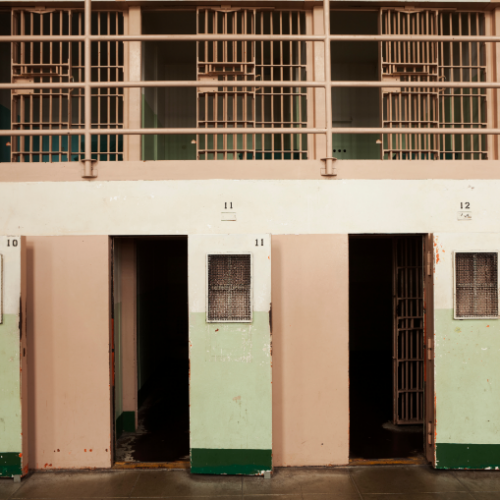Bipartisan Group of Lawmakers Introduces Second Chance Reauthorization Act of 2025

From left to right: Senators Shelley Moore Capito (R-WV) and Cory Booker (D-NJ) and Representatives Carol Miller (D-WV) and Danny K. Davis (D-IL)
Today, Senators Shelley Moore Capito (R-WV) and Cory Booker (D-NJ) and Representatives Carol Miller (D-WV) and Danny K. Davis (D-IL) introduced the Second Chance Reauthorization Act of 2025 in both the Senate and U.S. House of Representatives. The bipartisan act would ensure the continuation of critical reentry services for people returning from incarceration including housing, education, substance use disorder treatment, and job training.
Bipartisan Support
The 2025 bill has received wide bipartisan support. Co-sponsors include Senators John Cornyn (R-TX), Dick Durbin (D-IL), Thom Tillis (R-NC), Sheldon Whitehouse (D-RI), Kevin Cramer (R-ND), Amy Klobuchar (D-MN), Jim Justice (R-WV), and Angela Alsobrooks (D-MD) in the Senate and Representatives Barry Moore (R-AL), Hank Johnson (D-GA), Don Bacon (R-NE), Lucy McBath (D-GA), Darin LaHood (R-IL), Bobby Scott (D-VA), Bruce Westerman (R-AR), Nydia Velázquez (D-NY), Laurel Lee (R-FL), Shontel Brown (D-OH), Lloyd Smucker (R-PA), Andre Carson (D-IN), Michael Turner (R-OH), and Pramila Jayapal (D-WA) in the House of Representatives.
A broad coalition of national, state, and local leaders, associations, and organizations have long supported the Second Chance Act. Led by The Council of State Governments Justice Center, a non-partisan association of state leaders focused on advancing safety and second chances, over 595 organizations recently called on Congress to continue funding the Second Chance Act to reduce recidivism and improve public safety.
Why the Second Chance Act Matters
Ninety-five percent of incarcerated people return to their communities. Without support, many are at risk of reoffending and going back to prison. To help provide this needed support, Congress passed the Second Chance Act on a bipartisan basis, and President George W. Bush signed it into law, in 2008. The act was last reauthorized by Congress and President Trump in 2018.
The Second Chance Reauthorization Act of 2025 addresses the key factors that influence recidivism, such as employment, education, substance use disorders, and mental health disorders. Research shows that workforce and education programs in prison not only reduce the likelihood of recidivism, but also increase the likelihood of employment and earnings after release.
Substance use disorder and mental illness are especially prevalent within the incarcerated population: A 2009 study found that more than half of the people in state prisons and two-thirds of people in jail met the criteria for “drug dependence or abuse.” Addiction and mental health treatment have been shown to lower recidivism and overdose rates.
Proven Results
Second Chance Act programs make communities safer and stronger. By focusing on individualized pathways to success and evidence-based interventions, these programs have helped reduce recidivism nationwide by 23 percent since 2008.
From 2009 to 2024, the U.S. Department of Justice awarded over 1,300 Second Chance Act grants to 871 state, local, territories, and Tribal governments, as well as reentry-focused organizations across 49 states, territories, and the District of Columbia.
In response to growing calls for police reform in New Jersey, particularly following the shootings of Najee Seabrooks…
Read MoreA positive school experience, where a child feels secure, is essential for their well-being. However, for many children…
Read More Three Things to Know About New Jersey’s Groundbreaking Community Response Legislation
Three Things to Know About New Jersey’s Groundbreaking Community Response Legislation
In response to growing calls for police reform in New Jersey, particularly…
Read More The Path to Statewide Community Crisis Response in New Jersey: A Community Advocate’s Perspective
Read More
The Path to Statewide Community Crisis Response in New Jersey: A Community Advocate’s Perspective
Read More
 Supporting Children of Incarcerated Parents: Reimagining School and Community Collaboration
Supporting Children of Incarcerated Parents: Reimagining School and Community Collaboration
A positive school experience, where a child feels secure, is essential for…
Read More Bridging Communities and Correctional Systems: Q&A with CSG Justice Center Advisory Board Member Commissioner Nicholas Deml
Read More
Bridging Communities and Correctional Systems: Q&A with CSG Justice Center Advisory Board Member Commissioner Nicholas Deml
Read More
 Assigned to the Cloud Crew: The National Incarceration Association’s Hybrid Case Management for People with Behavioral Health Needs
Assigned to the Cloud Crew: The National Incarceration Association’s Hybrid Case Management for People with Behavioral Health Needs
When returning to their communities from criminal justice settings, people with behavioral…
Read More










